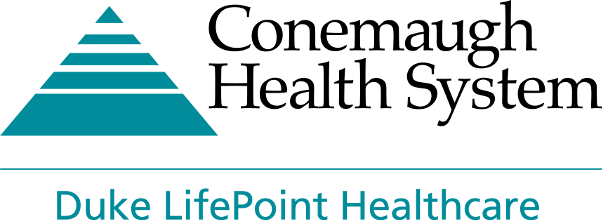Curriculum & Fees
Fees
Fees are handled through Pennsylvania Highlands Community College. See TUITION AND FEES for more information on tuition and fees.
Curriculum
Conemaugh's School of Histotechnology in partnership with Pennsylvania Highlands Community College offers a two-year degree program, consisting of classroom and clinical education.
To complete the Health Professions: Histotechnology A.A. S. Degree Program the following is the recommended Sequence of Courses (student pathway) for completion. Minimum credits to earn A.A.S. degree: 62.
Semester I
- HSC 105 - Intro to Health Professions
- HSC 100 - Medical Terminology
- ENG 110 - English Composition I
- BIO 104 - Principles of Biology I Lecture
- BIO 114 - Principles of Biology I Lab
- PSY 100 - General Psychology**
Total Credits (14)
Semester II
- MAT 131 - Intermediate Algebra
- CHM 115- Chemistry for Health Science
- COM 101 - Public Speaking
- LIF 111 - Health and Wellness
Total Credits (13)
Semester III Fall
- HSC 130 - Basic Anatomy & Physiology
- HST 101 - Histotechnology 101
Total Credits (13)
Semester IV Spring
- HSC 123- Operational Health Informatics
- HST 201 - Histotechnology 201
Total Credits (13)
Semester V Summer
- HST 250 - Histotechnology 250
Total Credits (9)
Course Descriptions
The Histotechnology Courses are taught by the Faculty at Conemaugh School of Histotechnology. All other courses are taught at Pennsylvania Highlands Community College by College Faculty. Histotechnology Courses are listed below with a brief description of each course.
HST 101 – Histotechnology 101 (10 credits)
This course introduces the student to histologic techniques and the Histotechnology laboratory. The theory of Histotechnology and Carson, Bancroft, and the Armed Forces Institute of Pathology (AFIP) set the foundation for the established histologic techniques. Key components are:
- Laboratory Operations to orient the student to the laboratory safety, regulatory compliance, standard laboratory procedures, and instrumentation.
- Laboratory Mathematics: for the preparation of solutes, solvents, and solutions used in histo-chemical procedures.
- Tissue Fixation: the first step in the histologic process and the foundation for all subsequent histologic processes to be successful.
- Tissue Processing: to employ the tissue processing steps of dehydration, clearing and infiltration to the appropriate schedule for the tissue type, size, and consistency.
- Tissue Embedding: for the proper orientation of tissue samples in the paraffin block for the subsequent steps of the histologic process.
- Decalcification: to prepare bone and other calcified specimens for the subsequent steps of the histologic process.
- Microtomy: for the operation of the microtomes to produce tissue sections in micron increments for the subsequent steps of the histologic process.
The clinical practicum provides the student the opportunity to demonstrate basic technical skills and accountability through the application of these techniques and interaction with the clinical faculty, pathologists, and other laboratory staff.
HST 201 – Histotechnology 201 (10 credits)
This course builds on the concepts learned in Histotechnology 100. The student will advance to more complex histologic techniques in the classroom and in the Histotechnology laboratory. The theory of Histotechnology and Carson, Bancroft and the Armed Forces Institute of Pathology (AFIP) set the foundation for the established histologic techniques. Key components are:
- Theory of Staining: to understand how staining techniques react with the different tissue types and consistencies for the color reactions to identify the intended structures for diagnosis. Routine stains, special stains, metal impregnation techniques, and immunohistochemistry/in-situ hybridization techniques.
- Pigments and Minerals: for stains to distinguish the presence of pigments and minerals as they pertain to the disease process suspected by the pathologist.
- Microbiology: for the staining techniques to distinguish microorganisms as they pertain to the disease process suspected by the pathologist.
- Connective Tissue: for the staining techniques to distinguish connective tissue types and the disease processes that are determined by their malformations or changes in morphology.
- Central Nervous System: for staining techniques to identify tissues of the central nervous system and their associated disease processes.
- Lipids: for staining techniques to identify carbohydrates. Muco-substance, polysaccharides, and the associated disease process.
- Immunohistochemistry/In-situ Hybridization: for IHC and ISH techniques to distinguish the presence of specific antibodies associated with the disease process.
The clinical practicum provides the student the opportunity to demonstrate basic and more complex technical skills and accountability through the application of these techniques and interaction with the clinical faculty, pathologists, and other laboratory staff.
HST 250 – Histotechnology 250 (9 credits)
This course builds on the concepts learned in Histotechnology 100 and 200. The student will advance to becoming a competent histologic technician, be prepared for the registry examination, and ready for employment. The theory of Histotechnology and Carson, Bancroft and the Armed Forces Institute of Pathology (AFIP) set the foundation for the established histologic techniques. The clinical practicum provides the student the opportunity to demonstrate basic and more complex technical skills and accountability through the application of these techniques and interaction with the clinical faculty, pathologists, and other laboratory staff.
Key components include:
- Preparation for the American Society of Clinical Pathology Board of Certification Examination.
- Microscopic identification of tissues and staining procedure performed.
- Troubleshooting procedures that did not perform appropriately.
- Practical examination consisting of 10 different tissue types, each with a specific staining assignment. The student will prepare each slide to be of high diagnostic quality and free of any artifacts
- A program comprehensive examination will be given.
